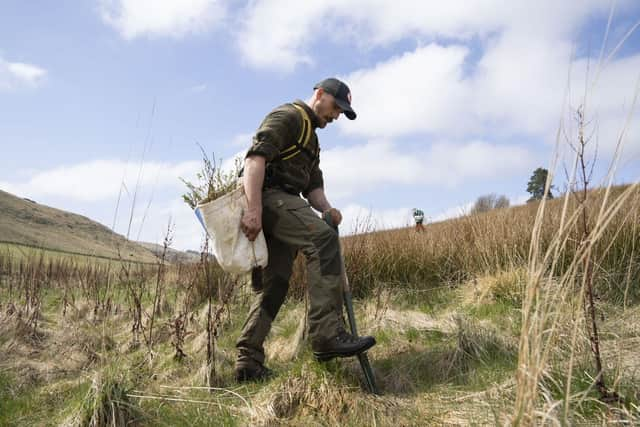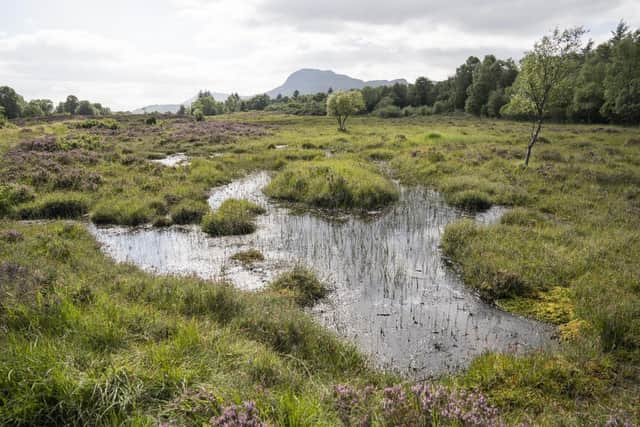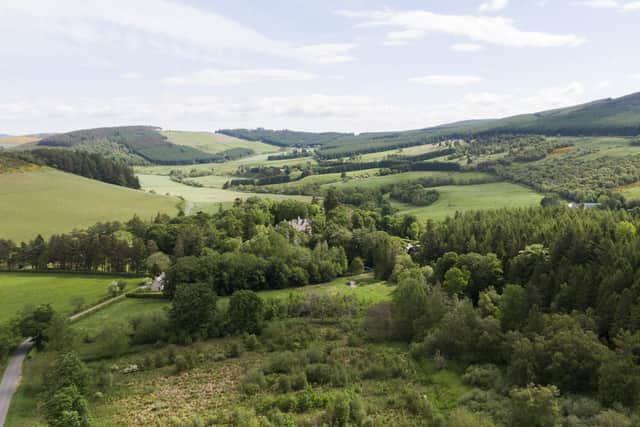Reaching net zero with Highlands Rewilding: do you want to be a ‘citizen rewilder’ and help nature recover?
More than a year after Glasgow hosted Cop26, and with this year’s climate summit in Sharm El Sheikh in Egypt having drawn to a close, there is still much to be done if the world is to meet its net zero targets.
Scotland aims to reach net zero emissions of all greenhouse gases by 2045, and an initiative that is making a contribution to sustainability in a range of innovative ways is Highlands Rewilding. The Invernesshire-headquartered company says it aims to rewild and re-people the Scottish Highlands by increasing carbon sequestration, growing biodiversity, creating green new jobs and generating sustainable profit for purpose.
The mass-ownership company currently manages two rewilding projects in the Highlands of Scotland at the Bunloit Estate and the Beldorney Estate. It wants to be “one of the most impactful accelerators of nature-based solutions in the world by 2026”.


As part of its drive to meet its ambitions, it is currently crowdfunding with “citizen rewilders” being able to invest between £50 to £200,000 in Highlands Rewilding.
Jeremy Leggett, chief executive officer of Highlands Rewilding, founded the company in 2021, funded largely by angel investors, to tackle the “biodiversity collapse”.
He explains how his determination to fight climate change began. “I started my vocational life as an academic on the faculty at Imperial College where I researched and taught earth science,” he says. “That got me really concerned about the climate meltdown and I decided to do something about it. I set up a solar energy company, Solarcentury, which was successful and was acquired by Norwegian renewables giant Statkraft in 2020. I then bought the two estates in the Scottish Highlands with the aim of increasing biodiversity.”
Leggett adds: “Our primary focus is on two existential problems for humankind - climate meltdown and biodiversity collapse. If we don't fix those problems, we’re in deep trouble.”


But he points out there is a big financial mountain to climb if the Scottish government is to achieve its net zero targets. He refers to analysis by the Green Finance Institute in its UK Nature Report published last year. It identified an investment gap to secure key nature-related outcomes in Scotland - such as biodiversity protection and restoration - of up to £27 billion over 10 years.
But Leggett remains optimistic. He says: “I’ve seen that level of investment happen in the solar energy revolution. I'm working to help it happen again in the emerging nature recovery industry. But we’ll have to involve lots of private finance, including the big investment houses, pension funds and banks.”
In its initial fundraising round, Highlands Rewilding attracted 50 founding funders who put their money into the Bunloit Project. But only one financial institution, MFS Investment Management, got involved.
Highlands Rewilding’s current crowdfunding campaign is attracting interest from existing and new investors and a focus is on appealing to Scots, especially those local to the Highlands.


Leggett explains: “We want to have hundreds, maybe thousands of shareholders. The idea of our retail crowdfunding has been to make the minimum amount that can be invested as low as possible, so it’s a genuine mass-ownership company.”
And people should not invest unless they are prepared to lose all the money they invest. This is a high‑risk investment, and you are unlikely to be protected if something goes wrong.
One of Highlands Rewilding’s founding investors, who is also taking part in the current crowdfunding, is Fraser Campbell, managing director of Cobbs Group, a tourism-focused business headquartered in Drumnadrochit.
Campbell says: “We heard about Jeremy buying Bunloit Estate on our doorstep and went along to be shown round. We were blown away by what he and his team were doing, for example in soaking up carbon, and helping tourism. It was just fantastic. We decided at that point we needed to invest and be involved.”
He hopes that as well as tackling climate change, Highlands Rewilding’s initiatives will attract more visitors to the area all year round, and that they will stay for longer, to the benefit of the wider economy.
Leggett concludes: “We’re reaching out to anyone who wants to be a citizen rewilder. We’re doing something new with Highlands Rewilding which I hope will be viewed as a good contribution to society.”
Find out more at https://www.highlandsrewilding.co.uk/ or read their blog here.